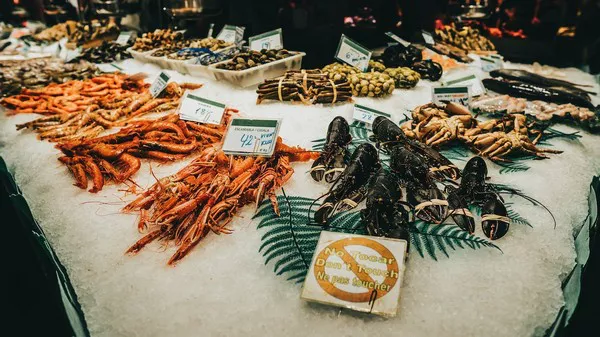HOKKAIDO, Japan – Almost a month after China and Hong Kong initiated a ban on seafood imports from Japan, seafood products, particularly scallops, from Hokkaido are accumulating in cold storage facilities, causing financial strain on businesses.
Scallop stockpiles have swelled within Hokkaido’s processing facilities, leading to increased expenses for storage, including electricity costs and transportation to alternative facilities, according to a report released by the prefectural government on Friday.
Chinese customs data for August revealed a staggering 67.6% drop in seafood imports from Japan compared to the previous year.
Hokkaido, which previously exported a significant portion of its scallops to China, stands as one of the regions most severely impacted by the import ban. In the past year, seafood shipments to mainland China constituted approximately 64% of the prefecture’s marine product exports, amounting to roughly ¥83.3 billion, according to the prefectural government’s data.
Among the affected companies, seafood processing firm Maru Uroko Sanwa Suisan, situated in Monbetsu and handling approximately 50 tons of scallops daily, is grappling with the repercussions of the seafood embargo. Nearly 20% of the scallops it processed were designated for companies exporting to China.
Now, with products initially intended for the Chinese market left unsold, the company is shifting its focus to other markets that favor peeled scallops, incurring additional processing expenses.
Company President Kazuya Yamazaki stated, “There are numerous production processes, such as peeling, cleaning, freezing, sorting, packing, and more, all of which consume time and labor. That’s the problem. And if there is a Chinese import ban like this, the market price will eventually decrease a bit.”
Yamazaki further mentioned that the company is now grappling with an excess inventory of scallops due to the plummeting prices, with clients waiting for price stabilization and the implementation of government subsidies before making purchases.
Even products incorporating small amounts of seafood have not been spared from the ban’s impact. Approximately 70% of shipments to China containing seasonings with scallops as an ingredient have been canceled, as per the Hokkaido report.
Meanwhile, trade groups have indicated that while they explore alternative markets beyond China, businesses in Western nations have sought price reductions. Additionally, if the seafood ban persists, further funding may be required to reprocess or repackage seafood for new buyers.
Sea cucumbers, a sought-after ingredient in China, have also been adversely affected. In Hokkaido, stockpiles of sea cucumbers intended for export to China have led to increased storage costs.
Furthermore, due to decreased demand and falling sea cucumber prices, a large-scale sea cucumber fishing operation scheduled for October in Aomori Prefecture has been canceled, according to the Aomori Prefecture Fisheries Cooperative Federation.
The report also noted an increase in random customs inspections in Thailand.
Agriculture and Fisheries Minister Ichiro Miyashita, who visited Hokkaido on Sunday, announced on Tuesday that he will assist companies by formulating a package of policy measures. These measures will include efforts to boost domestic scallop consumption, explore new export markets, and provide financial aid.
However, Maru Uroko Sanwa Suisan’s Yamazaki criticized the government for not acting more proactively and for failing to provide specifics about who would qualify for subsidies, given the industry’s many stakeholders, including producers, processing companies, and sellers. “They should have taken more proactive steps from the outset,” he remarked.

